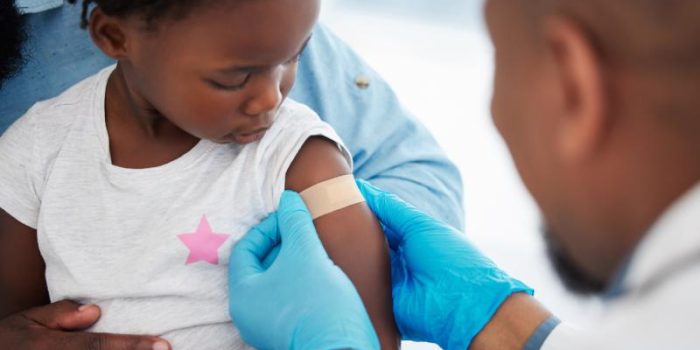In the wake of this week’s meeting of a newly reconstituted federal vaccine advisory board, public health, medical, and infectious disease experts are not holding back in their reaction to the panel’s new direction, which they fear will only serve to further undermine public confidence in vaccines.
The 2-day meeting of the Centers for Disease Control and Prevention (CDC) Advisory Committee on Immunization Practices (ACIP) was marked by a controversial vote to recommend that all Americans receive flu vaccines only in single doses that don’t contain the preservative thimerosal, which has long been a target of vaccine critics, including Department of Health and Human Services Secretary Robert F. Kennedy Jr. That vote came after a presentation on thimerosal that many observers say was filled with inaccuracies and long-debunked talking points.
The new ACIP chair also indicated that the board plans to review the entire childhood immunization schedule and use of two specific childhood vaccines.
“Re-examining the childhood vaccine schedule and the use of thimerosal are both politically motivated actions that are not based on science,” Infectious Diseases Society of America President Tina Tan, MD, said in a statement following the meeting’s conclusion. “Raising questions without adequate data casts doubt on vaccination, which can further drive down confidence in vaccines.”
An unprecedented meeting
The meeting was one of the most unprecedented in the group’s 60-year history. Two weeks prior to the meeting, Secretary Kennedy fired the board’s 17 standing members and replaced them with eight new members with little expertise in vaccinology and immunology, including some who are vaccine critics. One of the new members dropped out shortly before the meeting due to conflict-of-interest issues.
In another move that sparked concern, a draft agenda released a week ahead of the 2-day meeting, which was held at CDC headquarters in Atlanta, included two new presentation topics—thimerosal as a vaccine ingredient, and the use of the combined measles, mumps, rubella and varicella (MMRV) vaccine in children under 5.
The changes to ACIP prompted the American Academy of Pediatrics (AAP) to boycott the meeting, which it typically attends as a liaison member.
“For decades, the AAP and other organizations have worked to shape immunization policy through the ACIP. But now, with the committee dismissals, it is no longer a credible process,” AAP President Susan J. Kressly, MD, said in a video posted ahead of the meeting. “We won’t lend out our name to a system that is being politicized at the expense of children’s health.”
The concerns were not dispelled on the first day of the meeting. As CIDRAP News reported, new ACIP chair Martin Kulldorff, PhD, a statistician and epidemiologist who became a vocal critic of the COVID-19 response and vaccine mandates, kicked off the meeting by announcing changes to the membership of the CDC’s 11 different vaccine working groups and the addition of two more working groups.
Kulldorff said one of the new working groups would look at the cumulative effects of vaccines on the CDC’s recommended schedule for children and adolescents, and the other would examine hepatitis B vaccination at birth and the use of the MMRV vaccine in young children. Anti-vaccine groups have long promoted the idea that US children get too many vaccines too soon, and that the cumulative effects have not been properly studied.
But the ACIP has looked at the safety of the schedule in the past and found no cause for concern.
“Every vaccine has been extensively studied, and the full schedule has been reviewed repeatedly by independent experts and through large population studies,” Jake Scott, MD, an infectious disease specialist at Stanford University, told CIDRAP News. “The claim that children get ‘too many vaccines’ sounds intuitive but ignores basic immunology—today’s vaccines are more refined than ever, with far fewer immune-stimulating proteins than decades ago.”
Every vaccine has been extensively studied, and the full schedule has been reviewed repeatedly by independent experts and through large population studies.
Amesh Adalja, MD, a senior scholar with the Johns Hopkins University Center for Health Security, said the decision to review the childhood immunization schedule, along with the vote to no longer recommend flu vaccines containing thimerosal, are an indication that ACIP has “transformed into an organ for the spreading of anti-vaccine propaganda.”
“I think what it shows is that ACIP is not going to be a place where judgments are based on scientific evidence or logic but based on scoring points for the anti-vaccine movement and trying to diminish the value of vaccines in the minds of the general public,” Adalja said. “And because of that, ACIP is going to increasingly become irrelevant to clinicians who are recommending vaccines or who are administering vaccines.”
Some of what occurred over the 2 days was less controversial. For example, the group voted to reaffirm the recommendation that everyone age 6 months and older who doesn’t have contraindications should be vaccinated against flu each year, and to recommend use of the updated flu vaccine strains for the 2025-26 flu season. They also voted to recommend the newly Food and Drug Administration (FDA)-approved monoclonal antibody clesrovimab for newborns and infants entering their first respiratory syncytial virus season, though two members of the group voted against the recommendation.
Former head of anti-vaccine group among the presenters
The vote on thimerosal, a derivative of ethylmercury that’s used as a preservative in multidose flu vaccine formulations, came after a presentation by Lyn Redwood, RN, MSN, president emerita for Children’s Health Defense, the anti-vaccine group founded and formerly chaired by Kennedy. The preservative has been used to prevent contamination in multidose vaccine vials since the 1930s, but in 1999 the CDC and the AAP asked vaccine manufacturers to remove it from childhood vaccines as a precautionary measure due to public concerns about links to autism, even though no evidence existed of harm.
The preservative is still used in 4% of flu vaccines, according to an FDA official who attended the meeting, but only in multidose formulations.
Redwood’s presentation focused on thimerosal’s role as a neurotoxin. According to a fact check of the meeting by the Evidence Collective, a group that includes subject matter specialists in infectious diseases, the presentation did not go through the typical vetting process for ACIP presentations. And as CNN reported earlier in the week, the initial version contained a citation of a non-existent study.
“The presentation included a firehose of cherry-picked data without any context and clear anti-vaccine bias,” the group said. It also noted that a CDC-authored report on thimerosal that had been submitted prior to the meeting, which found that the evidence did not support any association between thimerosal-containing vaccines and autism spectrum disorder or other neurodevelopmental disorders, was subsequently withdrawn. The CDC’s own website says thimerosal use in medical products is safe.
Several members of liaison groups who attended the meeting spoke out against the three separate recommendations that children, pregnant women, and adults only receive single-dose flu vaccines that are free of thimerosal. The lone ACIP member who voted against the recommendations was Cody Meissner, MD, a professor of pediatrics at Dartmouth Geisel School of Medicine and previous ACIP member.
I think what it shows is that ACIP is not going to be a place where judgments are based on scientific evidence or logic but based on scoring points for the anti-vaccine movement and trying to diminish the value of vaccines in the minds of the general public.
During the deliberations, Meissner noted that ACIP generally makes its recommendations on scientific evidence and that any safety issues with thimerosal had been addressed.
“No study has ever indicated any harm from thimerosal,” Meissner said.
Nonetheless, five members voted for the recommendations, while another abstained because they didn’t like the wording of the question.
“They basically placated the anti-vaccine movement,” Adalja said.
Fears of compromised vaccine access
In a joint statement issued after the meeting concluded, the ACIP members said they came to the meeting with no pre-determined ideas about vaccines and “will make judgements as if we are treating our own families.”
“Our central duty is to protect public health, and we understand that we must answer the call for reestablishing confidence in the scientific examination process,” the group said. “This committee strongly supports the use of vaccines, and other countermeasures, predicated on evidence-based medicine, including rigorous evaluation and expansive, credible scientific data, for both safety and efficacy.”
But in an opinion piece published yesterday in Stat, Kressly and Tan, along with the presidents of the American College of Physicians, American College of Obstetricians and Gynecologists, and the American Academy of Family Physicians, warned that misinformation and sudden changes to federal vaccine recommendations will create confusion and could make vaccines less accessible and less affordable.
“We’ve seen what happens when that access is compromised,” they wrote. “When immunization rates drop, significant outbreaks return. History has shown us that when trust in science falters, preventable disease rapidly spreads and people suffer needlessly.”
Scott said he’s concerned about the broader pattern established by this week’s meeting and the new ACIP’s recommendations.
“When you chip away at settled science for political reasons, you risk unraveling public trust one ingredient at a time,” he said.













